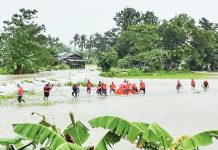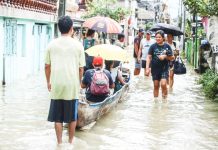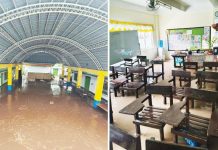
HERE’S one important development but unfortunately failed to hog headlines, and the public may have missed: the House of Representatives approved on third and final reading a measure (House Bill 5989) creating the Department of Disaster Resilience (DDR). The bill has been identified by President Duterte as a priority measure during his fifth State of the Nation Address on July 27 this year, and last year.
Under the bill, the DDR shall be the primary government agency responsible for “leading, managing, and organizing national efforts to prevent and reduce disaster risks; prepare for and respond to disasters; and recover, rehabilitate, and build forward better after the destruction.”
It is hoped that the DDR will ensure the country is able to anticipate and proactively respond to emergencies and disasters, which he expects to intensify with worsening climate conditions. It should help the country deal with disasters and emergencies not as unfortunate incidents whose impacts are beyond our control, but as risks that can be mitigated.
We can no longer deny the fact that climate change is real, that we are a – in the words of the bill’s author Cong. Joel Salceda – “volcanically and tectonically active” country, and that we face several typhoons each year. Disasters are a fact of Philippine life. But we can mitigate the human and socioeconomic costs of these disasters. DDR should help ensure that we have a full-time agency in charge of keeping us strong and ready for disasters.
DDR would be an institutionalized agency coordinating the national response to disasters and emergencies, replacing the ad-hoc and primary secretariat-type work of the current National Disaster Risk Reduction and Management Council. It will lead in the continuous development of strategic, holistic, and systematic approaches to disaster management, including prevention, mitigation, preparedness, response, recovery, and rehabilitation, and anticipatory adaptation strategies, measures, techniques, and options.
The DDR may undertake and implement certain emergency measures in anticipation of, during, and in the aftermath of disasters to protect and preserve life and property and ensure and promote public safety and welfare. Among these emergency measures include carrying out preemptive and forced evacuation; imposition of curfew; and temporary takeover of any private utility or business, subject to payment of just compensation when there is imminent danger of loss of lives or damage to property.
Now, the ball in the Senate. It must pass a counterpart measure that would institutionalize the cohesive, and comprehensive framework for disaster preparedness, prevention, mitigation, and response.





